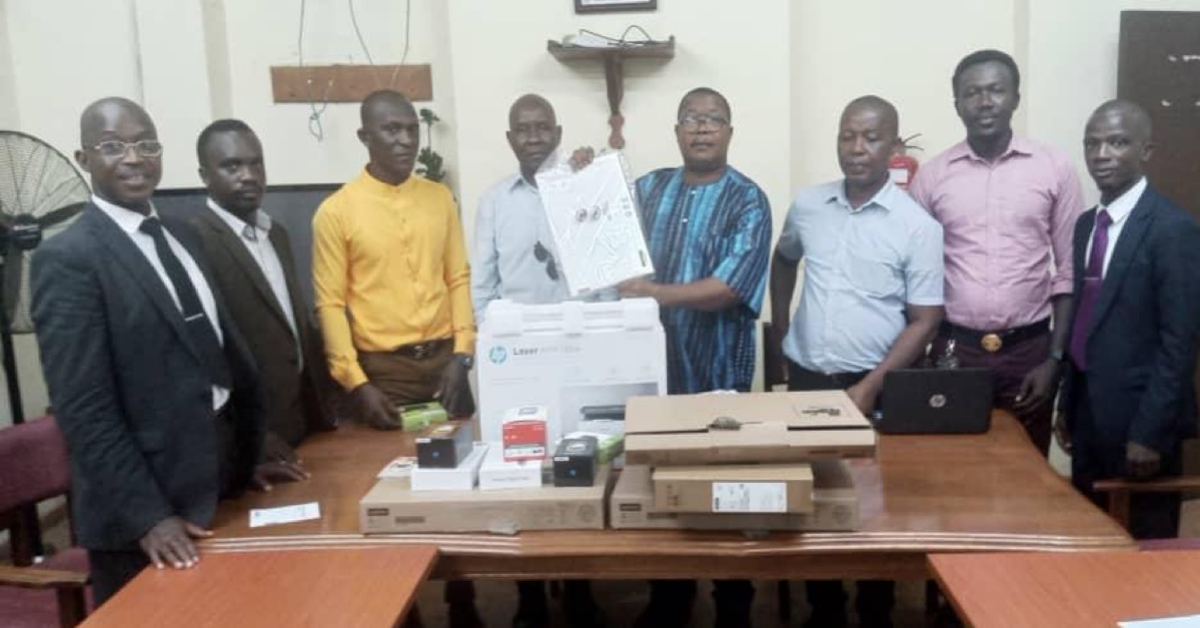On Monday, May 27, 2024, the Sierra Leone Agricultural Research Institute (SLARI), as the National Executing Entity (NEE) for the RICOWAS project, held a key handing-over ceremony at its headquarters. This event celebrated the acquisition of essential logistics materials aimed at improving the project’s field implementation efforts, addressing logistical constraints, and ensuring the smooth execution of the RICOWAS initiative.
Funded by the Adaptation Fund (AF) and implemented by the Sahara and Sahel Observatory (OSS), the RICOWAS project aims to strengthen the resilience of rice production through strategic interventions and innovative practices. The newly obtained logistical materials, procured following Sierra Leone’s strict legal procurement guidelines, include various office and communication equipment such as GPS devices, laptops, printers, and internet access tools. These resources are vital for the efficient implementation of data collection and tracking processes.
During the ceremony, Mr. Samuel Soki Harding, the RICOWAS Project Coordinator, underscored the importance of these materials in supporting Monitoring and Evaluation (M&E) officers and other field implementers. He pointed out that the equipment would enhance their ability to capture, process, and analyze field data, which is crucial for conducting Quality Assurance and Quality Control (QA/QC) measures and compiling comprehensive reports to monitor project performance indicators.
Dr. Abdul R. Conteh, the Acting Director General of SLARI, expressed deep gratitude to the Adaptation Fund and the Sahara and Sahel Observatory for their steadfast support. “The logistics materials and equipment provided today are not just tools but vital assets that will empower our team to effectively monitor and improve rice production under the Climate Resilient Rice Production (CRRP) program. This support comes at a pivotal time and will undoubtedly contribute to the successful implementation and sustainability of the RICOWAS project,” he said.
As the ceremony concluded, there was a noticeable sense of optimism and determination among the attendees. The handover of these logistics materials represents a significant milestone for the RICOWAS project, paving the way for more efficient and effective implementation of its objectives. With these new resources, SLARI is now better equipped to overcome logistical challenges and advance its mission of enhancing rice production and resilience in Sierra Leone.
This event highlights the collaborative efforts of both national and international partners in addressing the impacts of climate change and promoting sustainable agricultural development. The effective use of these logistical resources is expected to significantly influence the overall success of the RICOWAS project, ultimately benefiting agricultural communities, particularly smallholder farmers, and contributing to the nation’s food security goals.


 2 Comments
2 Comments









Comment(s)
Disclaimer: Comments expressed here do not reflect the opinions of Sierraloaded or any employee thereof.